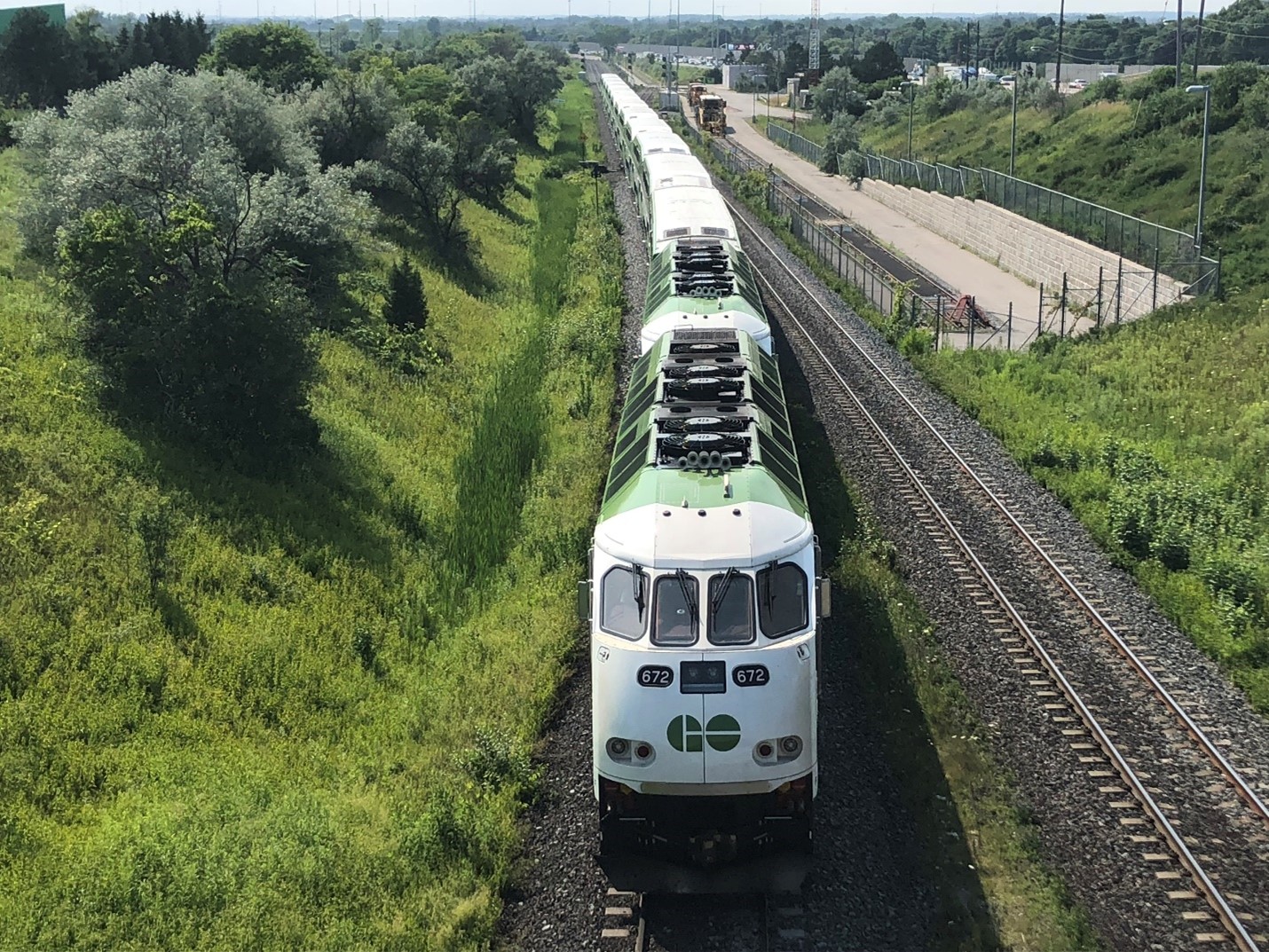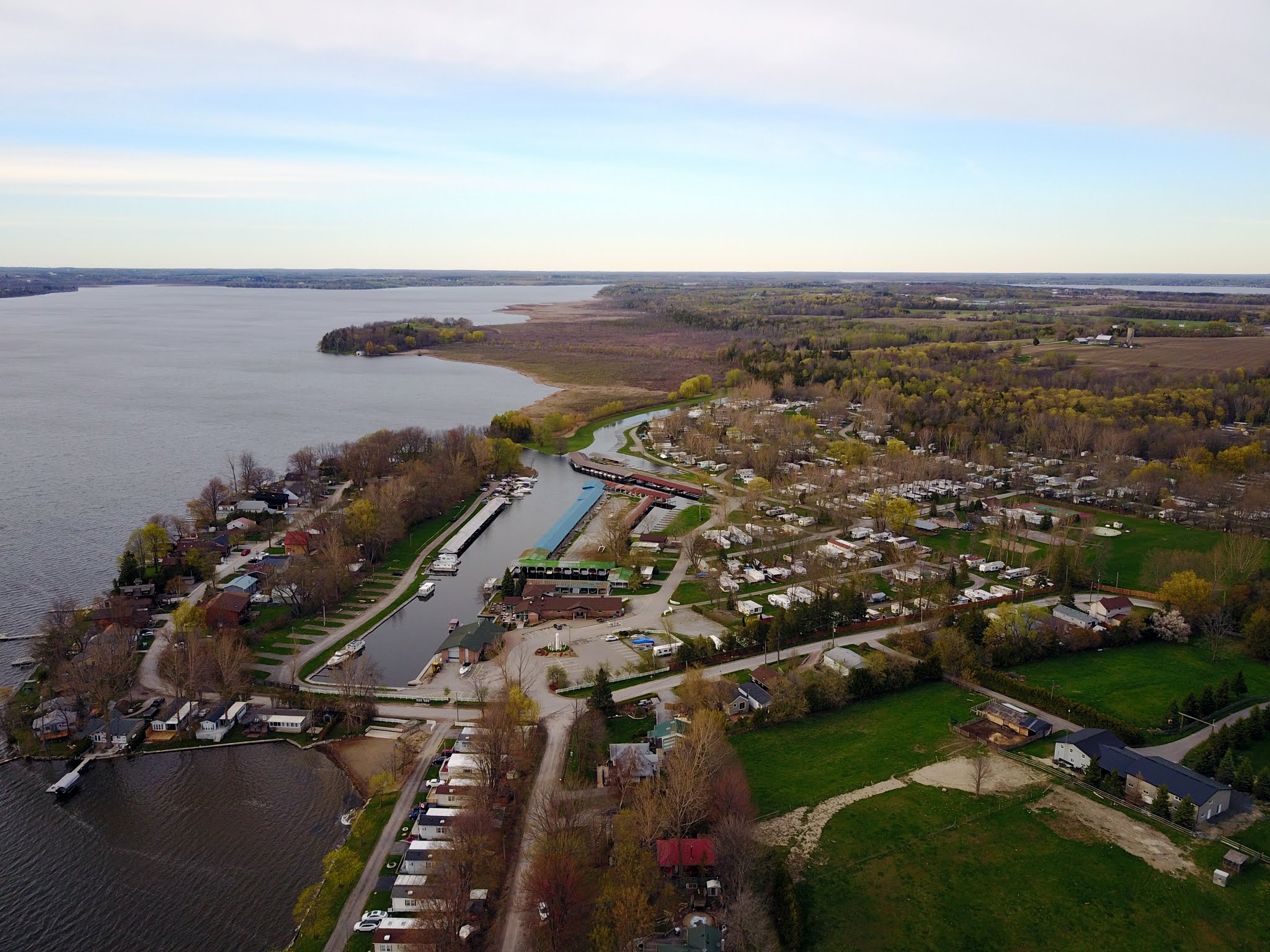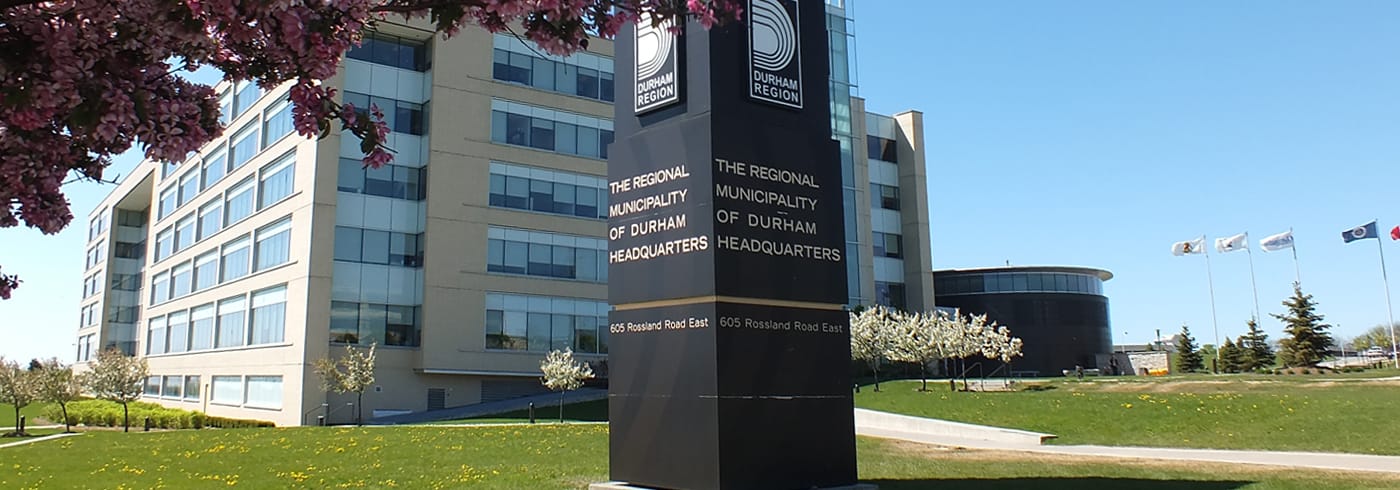Regional Advocacy
Durham Region is a great place to live, study, work and invest. We are growing rapidly, with our population forecasted to nearly double by 2051. As we envision the future for Durham, we have identified our top five advocacy priorities that we're watching in the upcoming provincial and federal elections.
Durham Region’s Top Five Advocacy Priorities:
- Respond with Strength to U.S. Tariffs
- Commit to Fund Durham’s new GO Stations
- Solve the Homelessness Crisis and Expand Affordable Housing
- Rebuild Health – Address Mental Illness and Addictions
- Change the Formula for Sustainable Municipal Finances
Respond with Strength to U.S. Tariffs

The imposition of U.S. tariffs on Canadian goods will have devastating effects on both sides of the border. Hundreds of businesses in Durham Region, employing many thousands of workers, depend on exporting their products to the U.S. and on importing goods from American producers.
| Our Asks |
|
To ensure the Durham community continues to prosper, we need:
|
Commit to Fund Durham’s new GO Stations

Durham residents are eagerly waiting for the promised GO Lakeshore East Extension to Bowmanville. While early construction work on the rail line is promising, there has been no provincial commitment to fund the four new stations.
| Our Asks |
|
The province has a market driven strategy for funding GO stations. Bill 131, Transportation for the Future Act, provides a pathway for GO stations to be built but we need action to put this legislation to use. To ensure GO stations are built in Oshawa, Courtice and Bowmanville, we need:
|
Solve the Homelessness Crisis and Expand Affordable Housing

Like other communities across the country, Durham has seen a significant increase in the number of people experiencing homelessness. The number of people on Durham’s By-Name List has doubled in the past year. We need to work with all levels of government to solve the crisis.
| Our Asks |
|
In response to the crisis, Durham Regional Council has significantly increased investments in homelessness, including opening a 45-bed low barrier shelter in Whitby and transitional housing in North Durham. To address the homelessness crisis and expand affordable housing we need:
|
Rebuild Health – Address Mental Illness and Addictions

Residents are increasingly struggling with mental illness and addictions. The number of opioid poisonings and opioid-related emergency room visits are too high. And tragically, every month in Durham, at least one life is lost to an opioid toxicity death. These health challenges impact entire communities ─ from the individual who is to suffering, to their families and loved ones, to employers and neighbours.
| Our Asks |
|
Durham Region is fortunate to have community partners offering prevention initiatives, support and treatment ─ their impact would be greater with enhanced investments from senior government. To ensure residents get the mental healthcare and treatment they need we need:
|
Change the Formula for Sustainable Municipal Finances

Municipalities are constantly being asked to contribute more to meet unmet needs from other levels of government, whether to build affordable housing and infrastructure or contribute to healthcare capital projects like hospitals. At the same time, increasing costs for policing and escalating construction costs are putting pressure on municipal budgets.
| Our Asks |
|
Municipalities cannot run a deficit and rely on property taxes and water and sewer rates to fund the capital and operating budgets. Outdated financial arrangements are not meeting 21st century realities. To ensure life remains affordable for property taxpayers we are seeking:
|
Contact Us





